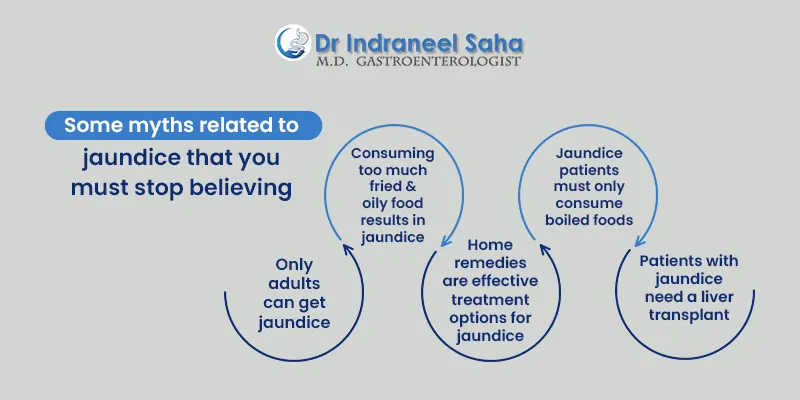- 18th Dec, 2024
- Jaundice Doctor
Is Jaundice Contagious? The Fact You Should Know
The prevalence of jaundice is very common among individuals, especially during the summer and monsoon seasons. It is a condition where the skin colour and eyes turn yellow, often caused by elevated bilirubin levels in the body. Bilirubin is a yellow substance that is produced by the breakdown of red blood cells that get filtered by the liver into the digestive tract. However, when the liver fails to process bilirubin, the pigment accumulates in the blood.
While many people think that jaundice is a disease, in reality, the condition is actually a symptom of an underlying health issue. Moreover, there is also a worry among individuals about the contagious nature of jaundice. So, is jaundice a transmittable disease? Let’s get an in-depth analysis of this statement from a reputed doctor for jaundice and also verify some other myths related to this condition.
Does Jaundice Spread From One Person To Another? Know The Truth From A Doctor For Jaundice
Perhaps one of the most persistent misconceptions about jaundice is its contagiousness. There is a false notion that most people have about jaundice. They think that an individual might also develop the condition if he comes close to the patient. This creates unnecessary fear and stigma, leading to misunderstandings about its nature.
Contrary to popular belief, the truth is, jaundice is not contagious. As already stated, jaundice is caused by excess deposition of bilirubin in the blood, which results from several issues like liver dysfunction, excessive breakdown of red blood cells, hepatitis, and even blood disorders.
While jaundice is itself not a transmittable disease, however, in some cases, the underlying issues that develop the condition are contagious. For instance, hepatitis can spread through contact with infected blood and other body fluids.
Some Other Myths Related To Jaundice That You Must Stop Believing.
Besides the common belief about the contagious nature of jaundice, here are some other misconceptions that need to be addressed.
- Only adults can get jaundice.
Jaundice can affect people irrespective of their age and gender. In newborns, jaundice is mainly due to the infant’s immature liver, which slows down the removal of bilirubin from the body. - Consuming too much fried and oily food results in jaundice.
Eating excessive amounts of unhealthy foods does not cause jaundice directly. The condition mainly results from liver dysfunction that occurs in people who consume too much junk or fatty foods. - Home remedies are effective treatment options for jaundice.
There is no medical report that proves that natural remedies can cure jaundice. You might get slight relief from its symptoms like nausea, vomiting, or loss of appetite. You need to consult a reputed doctor for jaundice to identify its exact reasons and get treated accordingly. - Jaundice patients must only consume boiled foods.
Doctors suggest patients have boiled and light foods in their diet as they are easier for patients to digest. Additionally, they must also incorporate lean proteins, fruits, vegetables and a lot of fluids to remove excess bilirubin from the body. - Patients with jaundice need a liver transplant.
A liver transplant is an option for patients when there is a complete failure and there are no other treatment options to restore its functions. Otherwise, in the initial stage, timely and proper treatment provides a cure for the condition.

Final Words
Though jaundice is a common condition, there are several misinformation surrounding the condition that prevents patients from getting the right treatment. Hence, you must always consult a doctor for jaundice who can address your issues and provide proper guidance.